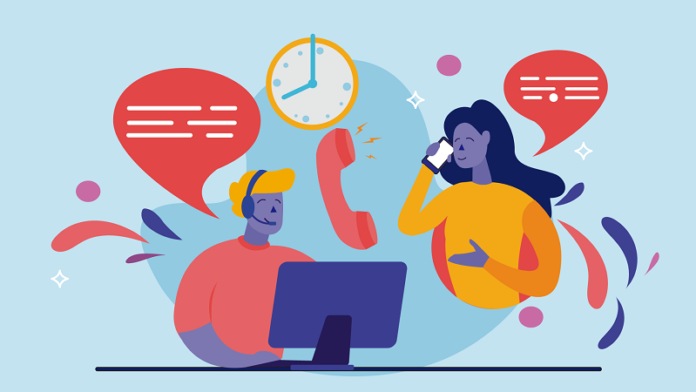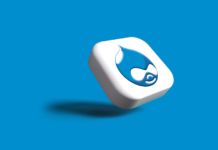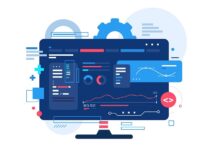With the increasingly competitive business terrain, brands want to stay ahead by being able to provide excellent customer service. Companies that lead in delivering great customer experience outperform others by nearly 80%.
Great customer support plays a big role in building long-lasting relationships and increasing customer retention. And good call center software makes all the difference in how well your business can support customers.
Call center software helps you provide efficient customer service by equipping you with customers’ information and history. And now, call center tools are becoming seamlessly integrated with CRMs to provide a comprehensive solution for customer support and sales.
CRM call center software increases the speed of resolving complaints, provides multiple channels for communication, and helps you deliver more personalized services. But how do you know which CRM call center software will be good for your brand?
In this article, we will look at the importance of call center software and the questions to ask before purchasing one.
Why Must A CRM Call Center Software Offer?
1. Multiple Communication Channels
The most advanced CRM call center software allows you to use and integrate several channels of communication. The tool can ensure that communication flows seamlessly across these channels.
What this means is that customers can engage with the brand in the way that suits them. They can use multiple platforms to contact customer support and sales without losing the context of the conversation.
2. Complete View of Your Customer
The CRM-call center integration software must give you a 360-degree view of your customer. You must get to see every single piece of information, from contact details to purchase history to logged complaints and queries. You can see your customers’ likes and dislikes and their preferences. With this, you get to know your customers better.
3. Greater Efficiency
The main aim of deploying software tools is to reduce the need to manually collect, store and organize customer data. The tool must unify all interactions and engagement between the customers and the brand into a single database that is accessible to every agent.
4. Faster Resolution Times
With good CRM call center software, you can see the complete history of a customer’s interactions with the business as you engage them. This reduces time spent trying to find out vital information or asking repeated questions. You can get to the heart of the matter fast and provide valuable solutions.
5. More Personalized Services
A CRM lets you know who your customers are. This way, you are equipped to handle each customer based on their preferences and challenges. For example, with good CRM call center software, you can identify a customer who has language challenges and route their calls to an agent who can speak their language.
6. Better Customer Experience
Fast, consistent, and personalized services will contribute to creating a positive experience for customers. When customers feel that you know them and understand their situation, they are more likely to trust you. And when you can consistently provide valuable solutions in ways that best suit their needs and preferences, satisfaction is enhanced.
Questions to Ask Before Purchasing a Call Center Software
There are many call center software available with different features and benefits. You must, however, do your research to be sure that you’re choosing software that is cost-effective and can meet the custom requirements of your business.
Here are 5 questions to ask before purchasing call center software.
1. Will It Meet Your Needs?
There are different types of CRM applications for call centers. So you must be sure that whichever you choose meets your needs. To answer this question, you must first outline the goals you want to achieve. Next, identify the key challenges you’re currently facing in providing valuable and efficient customer service.
What are your pain points? What does your team need the most? Does the software include features to help address those pain points?
You must answer these questions before committing to a purchase.
2. How Easy Is It to Use?
The goal of purchasing call center software is to make work easy and make your agents more efficient. So whatever software you choose should be easy to use. It should not require a long and difficult training process before your team can understand and use it.
A call center software that is highly complicated and technical defeats the whole process. Instead of relieving your team, it adds to their workload. Your call center agents should have a smooth and easy time learning how to use and navigate the new software. Utilizing an AWS Mind Map can help your team quickly comprehend how to utilize the new system effectively.
AWS Mind Maps are highly interactive visuals that break down complex concepts into manageable chunks of information. This visual format simplifies learning about the new software with clear connections between each component.
3. Can It Integrate With Other Software and Devices You Already Use?
Whatever software you choose must integrate well with all your existing devices and systems. For example, how well will it work with your email marketing or live chat tools?
Also, consider the time taken for data migration from your old systems to the new software. Your new CRM call center software should be compatible with your existing structure. It should allow for easy importing and exporting of data. This is particularly important to prevent data loss.
4. How Much Will It Cost?
Getting call center software is an investment. One that must be worth your money in the long run. However, you must be sure from the beginning that whatever tool you choose is within your budget. If you’re going to be paying weekly or monthly subscriptions, is it sustainable? Can your business afford it in the long run?
Take into consideration the number of users you have and the level of customization you need. These are factors that significantly affect the cost. More users and more customization lead to higher prices and also a higher cost of maintenance
5. Will It Be a Long-Term Solution?
The one thing you do not want to do is to keep changing software and having to perform data migration again and again. Each time you switch software, you might face integration issues.
Being shut down for the period of data transfer, and having to retrain your team can be stressful. You also risk data corruption. So, make sure that the software you want to purchase will serve your company for a long time. It should be one that will stay valuable even as you grow and expand.
Conclusion
For your call center to function optimally and provide great customer support, you need to have the right technology. So in choosing a call center software, prioritize organizational goals as well as the needs of your customers.
A good CRM call center software should allow for the seamless automation of tasks, provide valuable insights, and improve efficiency. It should work easily for your team and equip them to provide the best possible service. Above all, it must be cost-effective and improve productivity at the end of the day.
FAQs
1. Should I use the cloud for my call center?
Yes, you can most certainly benefit from cloud call center software if you are a large corporation or have more than one call center operating from different locations. Cloud computing allows you to store your data in such a way that any of your agents can access it from wherever they are, without physically being present on the premises.
2. What kind of headsets are required for CRM call center software?
Any kind of headset can be used. But bear in mind that headset quality will affect the quality of calls.








